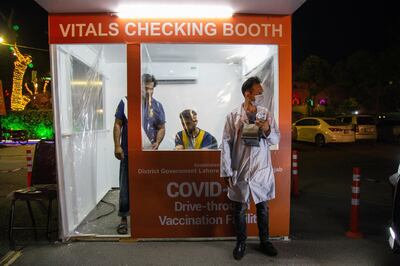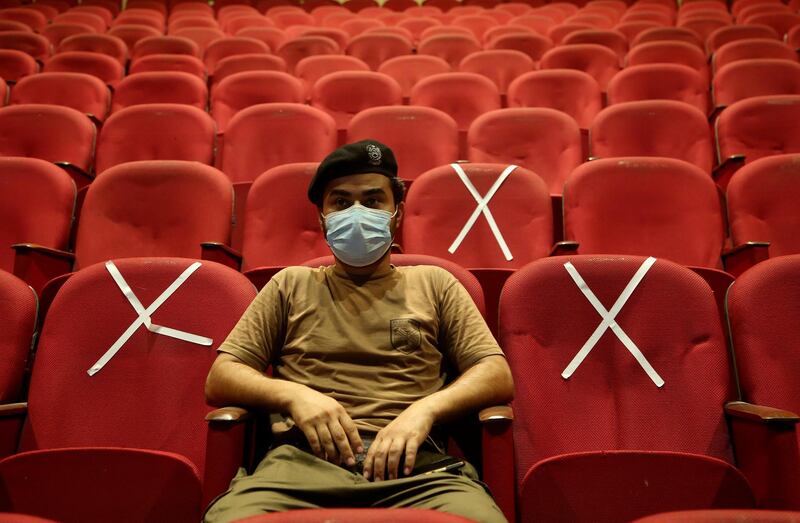The government in Pakistan’s Punjab province plans to block the SIM cards of residents who have not been vaccinated against Covid-19.
The decision was made during a meeting led by Dr Yasmin Rashid, the provincial minister of health care, on Thursday. She said the Punjab government was using every resource available to ensure residents get vaccinated.
"Final decision has been taken to block the mobile SIM cards of people not getting vaccinated," department spokesman Syed Hammad Raza told Pakistan's Dawn newspaper.
It was not announced when the SIM card blocking will begin.
The move comes on the heels of the federal government's decision to stop paying the salaries of its employees who have not received the Covid-19 vaccine, with effect from July.
The National Command Operation Centre overseeing Pakistan pandemic response said all public and private sector employees must be fully vaccinated by June 30.

Critics said Punjab's move to cut off mobile services was a drastic response to vaccine hesitancy.
"This is a regressive step as it affects the right to freedom of speech of citizens. What is required is to raise awareness about vaccinations, and not coercion," Prasanth Sugathan, legal director at India's Software Freedom Law Centre, told The National.
“During the pandemic, mobile phones are important for people to connect with others and to receive information.”
The decision may in fact make it more difficult to receive a vaccine appointment because Pakistan has digitised many of its Covid-19 procedures.
The country’s dedicated Covid-19 website encourages residents to text a phone number to register for a vaccination appointment or to call a hotline if they develop symptoms. These are services that residents without a working SIM card will be unable to access.
Pakistan faced initial vaccination hesitancy and a shortage of supplies but it started a mass vaccination campaign late last month.
Facing low vaccination rates, the Punjab government opened 677 vaccination centres across the province, including mobile units and walk-in centres.
“Mobile units will help accelerate the pace of vaccinations,” Dr Rashid tweeted.
All 36 districts in Punjab have at least one 24-hour vaccine centre.
Pakistan on Wednesday committed to spending $1.1 billion on procuring Covid-19 vaccines to inoculate eligible adults.
"Our target is to vaccinate up to 70 million people by the end of this year," said Asad Umar, the minister in charge of Covid-19 operations.
Only 2.5 million of Pakistan's 220 million people, a little more than 5 per cent, are fully vaccinated.







